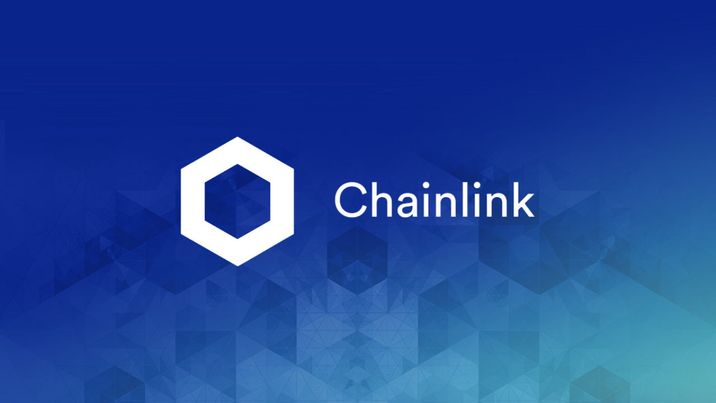An Introduction to Chainlink & Why Orcales are so Important

It’s common knowledge that smart contracts are one of the most impactful innovations of blockchain technology. Their application in the modern world is going to be massive. However, in order for smart contracts to reach their full potential of bringing about a new evolution of the internet, they will need to be able to interact with both on-chain and off-chain data.
As smart contracts are natively programmed on-chain, interacting with on-chain data is relatively easy. But with off-chain data, smart contracts need specific tools to provide accurate data that can then cause a smart contract to trigger. This is where oracles come into the equation.
Blockchain Oracles are third party services that provide smart contracts with external information that they would otherwise not be able to access. This information is referred to as off-chain data because it exists outside of a blockchain network or environment. Without having access to off-chain data, smart contract’s use cases would be severely limited. This is why oracles are seen as one of the most important aspects of web3 technology, because without them, most of the revolutionary blockchain-based applications that we know today would not work. It’s for this reason that oracles are seen as the bridge between blockchains and the outside world.
While it’s possible that some smart contracts can function without oracles, most transactional processes in the 21st Century require information that cannot be processed by blockchains. If smart contracts are going to be the primary technology for next generational transactions, they will need to be able to interact intelligently with data that is not stored on their networks. Typically, the types of data that smart contracts will need to facilitate common modern transactions include, but are not limited to, information on price feeds, weather information and random number generation.
What makes oracles super important is that they broaden the scope in which smart contracts can operate. Thanks to oracles, smart contracts can automate processes that exist mostly off-chain and without them smart contracts would have fairly limited use.
For instance, without the application of oracles, Ethereum based smart contracts would only be able to execute agreements based only on data that is recorded and stored on the Ethereum blockchain.
It’s worth noting however, that blockchain oracles do not necessarily source data themselves. Rather, they’re applications that query, verify and authenticate external data sources and then relay that data to smart contracts.
For example, suppose that two people wanted to bet on the winner of an election. Person A believes that Candidate 1 will win and Person B believes that Candidate 2 will win. Person A and Person B agree on the terms of a bet and lock their funds in a smart contract which will release the funds to the winner based on the results of the election. Since the smart contract cannot interact with external data alone, in this case the winner of the election, it relies on an oracle to provide it with accurate information. Without the services of an oracle, Person A and Person B would not be able to bet on the outcome of an election with decentralized technologies because smart contracts cannot themselves understand off-chain data.
So who is the largest blockchain oracle in the industry, making all of this possible?
Chainlink is the largest decentralized oracle in the world. It provides real-world data to smart contracts across a variety of different blockchain networks. This makes Chainlink completely blockchain agnostic as it can interact with multiple different networks, not just one. This is unique because it means that Chainlink is not limited to supplying only one network with information, which means that the prospect for future growth is not limited by one network's potential.
Chainlink is essentially a decentralized network of data providers that provide information from off-chain sources to on-chain smart contracts. This network of decentralized providers, along with additional extra-secure hardware, eliminates reliability issues that would potentially occur if a blockchain was to only use one, singular centralized data provider.
LINK is Chainlink’s native token and it’s used to pay node operators for their work. While the work that Chainlink does is advanced and complex, the way that Chainlink works is very simple. Prices are set by node operators based on demand for the data that they provide. Node operators then stake LINK to demonstrate their commitment to the network and their intent to provide accurate data. Nodes with a higher stake are more likely to be chosen to fulfill greater data requests and will earn more LINK in return for their services. This incentivizes node operators to accumulate LINK as more LINK equals more opportunities for greater profit.
To combat bad data providers and fraudulent activity, Chainlink punishes faulty and dishonest network operators by slashing their LINK stake. This is significant because not only does it act as punishment but it also reduces a bad actor's stake in the network, which reduces the likelihood of being chosen for future data requests.
To Conclude
Without oracles, smart contracts use cases would be limited. Smart contracts would only be able to process transactions that only require on-chain data. This would severely limit the scope for which smart contracts can be used and it would be impossible to ever reach mass adoption.
For smart contracts to have practical global applications, they will need to interact with accurate real-world data that exists off-chain. Oracles are essential for this because they enable smart contracts to interact with the data necessary that will enable them to improve a multitude of industries worldwide.